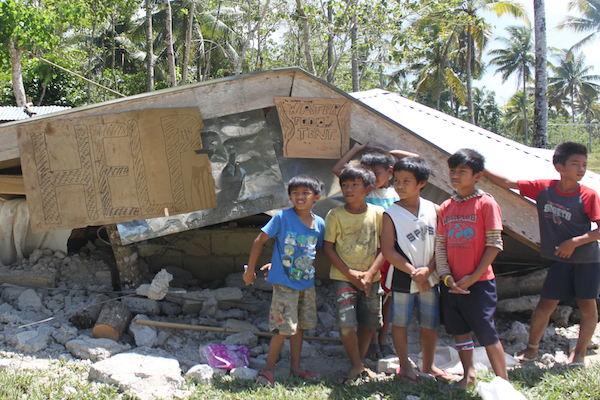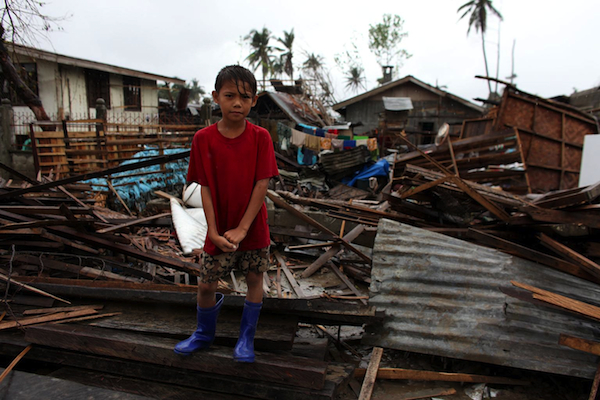Bohol Earthquake: UNICEF Responds
A major UNICEF emergency operation in the Philippines.

The effort comes in response to the 7.2 magnitude earthquake that struck Bohol Island on October 15. The earthquake, the strongest to hit Bohol in nearly 25 years, set off landslides and building collapses and tore apart bridges. At least 195 people were killed, 50,000 houses damaged, and nearly 350,000 people displaced. Seemingly endless aftershocks have traumatized survivors.
UNICEF is working with other aid organizations, U.N. agencies and Bohol's provincial government in a coordinated response to aid the 3 million people affected by the disaster. UNICEF is taking the lead in water and sanitation, nutrition and education.More than 70,000 people have taken refuge in evacuation centers, but 80 percent of the displaced are living out in the open beneath makeshift shelters. Emergency tents, medical supplies, clean drinking water and food are urgently required.
Water and sanitation needs include water treatment units, water quality monitoring and emergency latrines. The nutrition effort — which will include vitamin supplementation, deworming and vaccinations — focuses on 50,000 displaced children under age five and 35,000 pregnant or nursing women. In education, UNICEF will set up temporary learning spaces and replace lost teaching materials — the earthquake damaged schools and disrupted classes across the central Visayas region.
The United Nations has made an urgent appeal for $46.8 million to fund the post-quake emergency response, and UNICEF requires $12.2 million for its role in the coordinated effort. Please help.
 A 9-year-old boy stands amid homes destroyed by Typhoon Bopha in southeastern Mindanao last December. A recent earthquake in Bohol has further worsened the humanitarian situation in the Philippines. © UNICEF/NYHQ2012-1720/JOSH ESTEY
A 9-year-old boy stands amid homes destroyed by Typhoon Bopha in southeastern Mindanao last December. A recent earthquake in Bohol has further worsened the humanitarian situation in the Philippines. © UNICEF/NYHQ2012-1720/JOSH ESTEY


